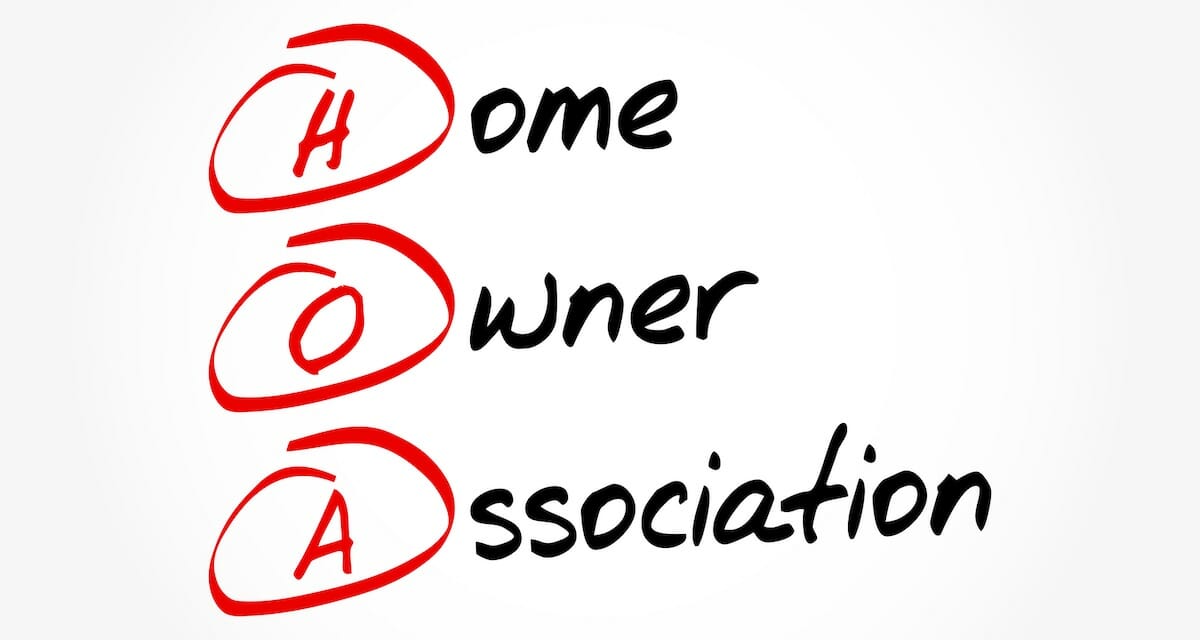What Is An HOA?
HOA Definition:
The acronym ‘HOA’ stands for Home Owners Association. This is a private institution that includes members living in the same community. Every HOA has a board of directors. These are individual volunteers who are voted into their respective positions.
Purpose
An HOA is set up for many reasons. The leading reason to increase house values. By enforcing regulations and rules, and maintaining common areas, the community looks beautiful and consequently increases property values over time.

HOA FAQs:
How is an HOA formed?
Once the houses in an area are erected, the developer establishes a community. They set up an HOA that operates similarly to a non-profit organization. Like a corporate or non-profit enterprise, an HOA is run by a Board of Directors.
How do people join an HOA?
According to the HOA definition, any person who purchases a house in the community automatically gains membership. This applies to individuals as well as families. As the community grows, the developer will hand over complete control of the HOA to its residents. All members will democratically elect members to sit on the HOA’s Board of Directors. These individuals are people who want to actively participate in the community and its functioning.
What are the responsibilities of HOA Board Members?
Elected board members have the authority to manage the daily operations of the neighborhood. These responsibilities include:
- Upkeep fo common areas
- Manage finances
- Enforce regulations and rules
- Create annual budgets
- Collect HOA fees
Individual board members have additional responsibilities depending on their position in the HOA.
Can Board Members Be Personally Liable?
HOA board members have the authority to meet their obligations. In return, they accept a legal and ethical responsibility on behalf of their community of homeowners. This means board members are legally obligated to promote the health and wellness of association members. They must make informed decisions and act within the limits of their authority.
Board members are protected from legal actions by the Business Judgment Rule, providing their decisions are made with the best intentions for the HOA. Sometimes an HOA may opt for Directors & Officers insurance policy for protection from lawsuits filed by vendors, homeowners, and other parties.
Is an HOA legal?
Every HOA has a set of its own governing rule book. These papers govern how a community functions. Examples include:
- Bylaws
- ARCs
- CC&Rs
- Regulations and rules
For instance, the rule book may outline a board member’s responsibilities. It will also list the responsibilities of a homeowner. These documents protect the property values of the community.
HOA communities must abide by the laws of all three government levels. For example, an HOA cannot enforce regulations that are contrary to the Americans with Disability Act.
What are some examples of HOA rules?
The rules set by an HOA will vary across communities. Most regulations address policies that deal with architectural features such as,
- Home additions to the exterior
- Pools
- Porches
- Fences
When purchasing a home with an HOA, most people will put more emphasis on their home and surroundings. Homeowners want to feel proud of their community. With an HOA, neighbors who usually don’t have time or don’t care about their homes will be required to keep their homes attractive.
What are the benefits of living in a community with an HOA?
The biggest benefit of being a part of an HOA is the ability to access common areas within a community. Many HOAs have clubhouses, basketball courts, tennis courts, pools, and other amenities. These are difficult for a single homeowner to afford. But if you’re living in a community that offers these common areas, you may easily take advantage of these pleasures.
The HOA’s board will also ensure that communal areas and homes are well-maintained. This is why homes in an HOA community enjoy high and stable property valuations.
What are some disadvantages of living in a community with an HOA?
Whether it is to keep property values stable or increase value in a community, homeowners must follow the stringent rules set by the HOA. These rules are listed in the community’s bylaws, CC&Rs, and governance documents.
Homeowners may not alter their property or home’s exterior in any manner. They should abide by the standards that specify the paint colors, designs, layout, etc.
In addition, homeowners are obligated to monthly fee payments in order to live within an HOA governed community. This may be expensive for some people. Lastly, a homeowner will receive notices for fines and violations if the rules are not followed.
What are Home Owner’s Association Fees?
To join an HOA, homeowners must pay fees every month. The fees are used for a variety of community upkeep services like,
- Sewage and water
- Garbage disposal
- Parks
- Electricity
- Reserve contributions
- Insurance
- Management fees
How much do homeowners have to pay?
The fees vary across HOA associations. The average HOA fee is between $200 to $300 every month. The fee amount may increase due to several factors. For instance, if a community has multiple amenities, there will be higher upkeep expenses resulting in higher fees.
The amount may also increase if the HOA is replenishing its reserve fund or investing in large-scale improvements or projects. The fee amount is determined by the Board of Directors at the annual budgetary meeting.
What are the repercussions if a homeowner does not pay HOA fees?
If the fees are not paid on time, penalties and late fees will be levied by the HOA board. HOA membership fees keep the budget on track. The consequences of not paying the fees on time or not paying them at all vary according to the community bylaws. For example, if you miss HOA fee payments, your access to the community pool may be restricted until the fees are paid.
Homeowners who repeatedly miss their HOA fee payments may be declared delinquent. In very rare cases, the HOA might file a foreclosure to obtain unpaid fees.
Are HOA fees necessary?
A homeowner must determine the pros and cons of living within an HOA governed community. This will help them decide if it’s worth paying the HOA fees. In some cases, an HOA may not be managing a community well. The homeowner may decide not to pay the fees. In such cases, the homeowners may take action. They may run for board membership or speak directly to current members.
Why do HOAs have reserve funds?
A percentage of the HOA fees are set aside in the Home Owner’s Association reserve funds. This is similar to a savings account. The money is used to fund big maintenance expenses like pavement resurfacing, roof replacement, adding amenities in the playground, etc.
How are reserve funds calculated?
To determine the amount of reserve funds, the HOA conducts a reserve project. Some states require a reserve project to be conducted every 3 years. Reserve studies examine the HOA’s assets. They also figure out the usefulness of each asset. A reserve specialist will look into HOA finances to figure out which is the best funding option. Results from the study will also provide insight into how much money is suitable in the reserve.
Can a homeowner get kicked out from an HOA?
Homeowners cannot get kicked out of the HOA. Nevertheless, if the fees are not paid, the HOA reserves the right to place a lien on the homeowner. In such cases, the delinquent homeowner must pay all unpaid fees, including late fees and interest charges.

